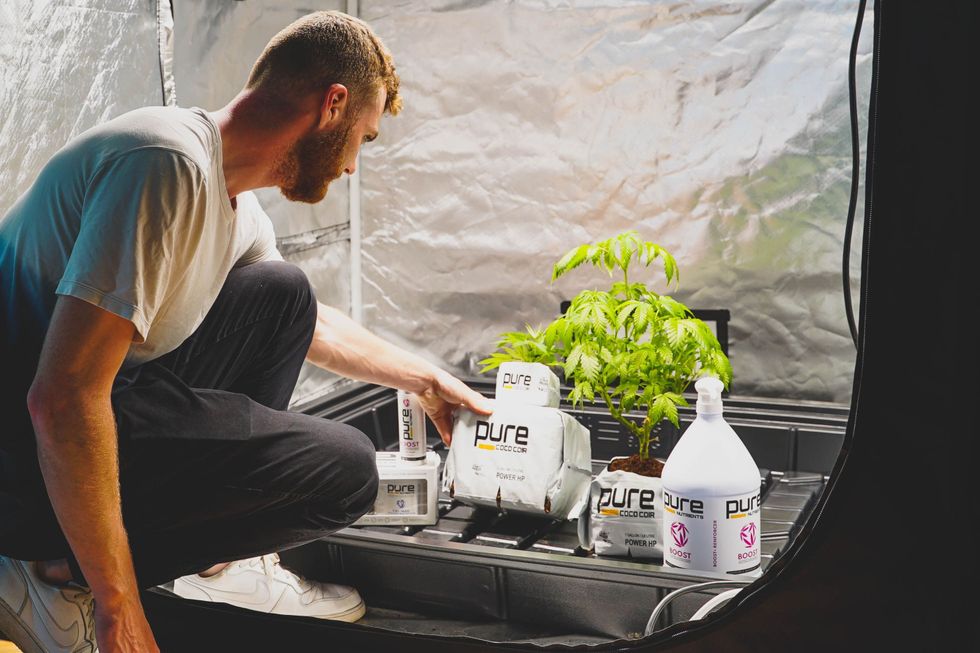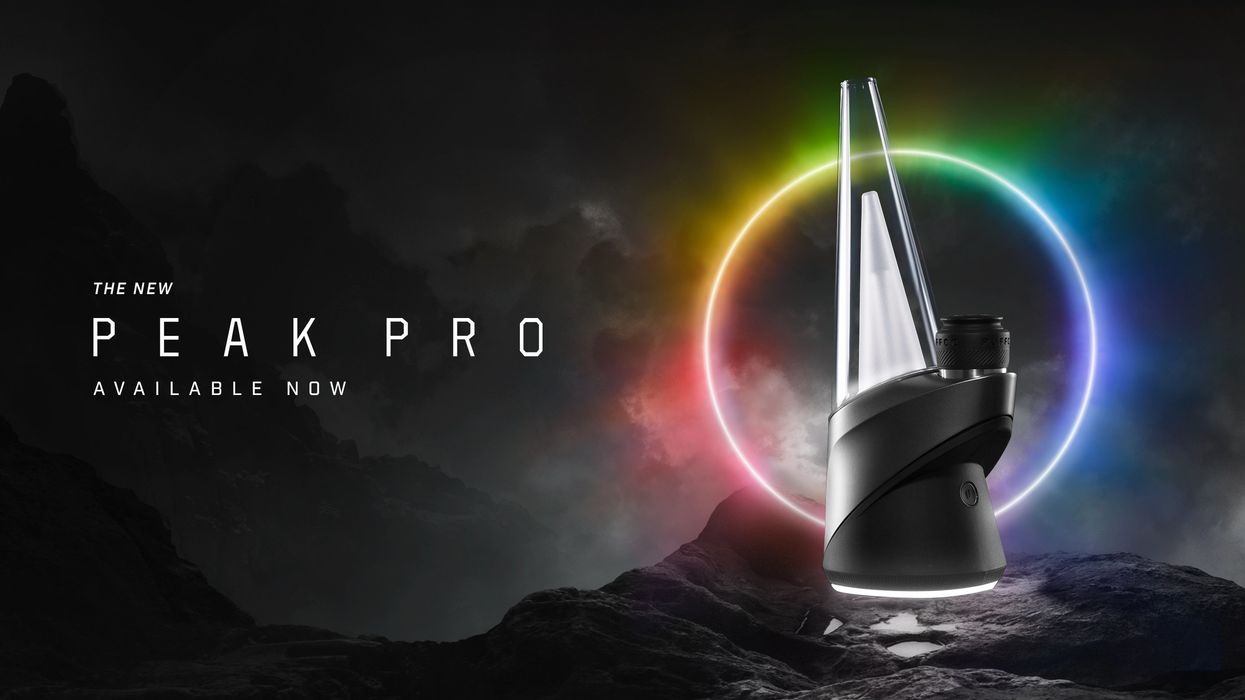The world is entering a digital revolution as major brands, companies, and independent innovators continue to move into the metaverse. At the moment, the web3 space is mainly populated by the finance, tech, and retail sectors – all of which intersect with cannabis, and can only imply one thing.
Cannaland is a global meta marketplace pioneering cannabis’s presence on the blockchain, educating operators and consumers on the plant’s space in the growing digital sphere as we get in on the ground.
The metaverse will allow for endless imagination and innovation in regards to how we do business and interact with one another as a society, and for cannabis, that means a lot of newly opened doors in an industry that has been massively restricted and highly regulated.
What is the Metaverse?
The metaverse aims to encapsulate the digital landscape with in-person reality, fusing the way we interact and conduct business to the web3 space in a future-defining manner. Technology is here to stay, and companies in every industry are beginning to imagine their place in the metaverse.
“I think we’re heading into a digital revolution similar to the Industrial Revolution. There’s no fighting it. It will change the way we interact with everything. People won’t leave their houses as much, because we’d all rather click three buttons on our phones and have things dropped off at our front doors,” said cannabis industry advisor and co-founder of Cannaland Matt Morgan.
“Web3 will be much more immersive. From a retail standpoint, I believe you’ll be going into more virtual shopping experiences – avatars trying clothes on with your exact same dimensions so when the clothing is delivered, it fits you exactly. There will be different segments of the metaverse: one that is very virtual that you live in, and another that is more augmented, like when Apple releases Apple glasses and virtual displays are popping up right in front of your eyes.”
According to Morgan, who’s had a front row seat to the world’s slow transition into the metaverse, this version of digital interaction will disrupt everything from video gaming to shopping to family reunions. Imagine a world where you can feel so digitally and immersively connected to your loved ones, even as you’re spread out around the world.
The Effects of Cannabis Entering the Metaverse
The legal cannabis industry is a highly regulated one that is still forced to deal with a variety of setbacks that continue to stunt its growth, like banking issues, unfair and often-changing restrictions on product sales, and above all else, its continued federal illegality.
As the rest of the profitable world rushes to transition into the metaverse, cannabis must proactively do the same to stay relevant, successful, and closer to widespread legalization.
But for an industry that is still under a federal microscope, what does moving into the unregulated and infinitely possible digital sphere actually mean?
“I’ve been in the vertical of cannabis since 2008, and there are a lot of challenges that come with being an operator and consumer. As an operator, it’s hard to market. Mainstream magazines won’t allow you to print or post, newspapers you have no chance, and even online and social media is incredibly restricted. You have to get very creative with cannabis marketing in general, to the point where you almost have to game the system to succeed,” Morgan said.
“Allowing cannabis companies into the metaverse unhandcuffs you. You can have your name everywhere, and market however you want in this space. There are no regulations.”
Cannabis in the metaverse might look like virtual dispensaries that mimic your favorite in-person location, allowing digital consumers to shop via augmented reality, “pick up” the products, chat with digital budtenders, and skip the long lines that often plague popular spots.
“In the same day, those products can be dropped off at your front door. And when the feds change their stance on legality, you might be able to virtually shop at any dispensary in the country and have a drone drop off your product later that afternoon,” Morgan said.
“Moving cannabis to the metaverse streamlines everything for operators and consumers, creating more profitable business ventures for retailers in the space and an overall improved shopping experience.”
Cannabis metaverse marketplaces will also have a remedying effect on the ongoing banking issues. Consumers will deal directly with digital currency inside the web3 space, which takes a huge weight off retailers’ shoulders and reduces the need for security to protect large amounts of unbankable cash.
This virtual approach to cannabis shopping will also open up the industry to a wider variety of consumers who may still feel intimidated by the prospect of walking into a dispensary with little-to-no experience.
“I think this transition will attract a new consumer. It will allow people to educate themselves and try things out from home, which could convert a lot of people from newbie to consumer. We’re already seeing this happening,” Morgan said.
“It’s just another extension – a gateway for people to absorb the data on the plant and buy some new products along the way.”
Ultimately, the metaverse is opening up a lot of new opportunities for businesses around the world, and for cannabis, that looks like a renewed sense of freedom: for brands, for operators, and for consumers.
Need a little more Bluntness in your life? Subscribe for our newsletter to stay in the loop.











 A Beginner’s Guide to Growing Cannabis at Home
A Beginner’s Guide to Growing Cannabis at Home






 What will you do with that cannabis kief collection? - Make Coffee! The Bluntness
What will you do with that cannabis kief collection? - Make Coffee! The Bluntness DIY: How to Make Kief Coffee - The Bluntness
Photo by
DIY: How to Make Kief Coffee - The Bluntness
Photo by 



 Best Weed Smoking Games to Try - Jammin'
Best Weed Smoking Games to Try - Jammin' The 31 Best Weed Smoking Games To Try
The 31 Best Weed Smoking Games To Try The Best Weed Smoking Games
The Best Weed Smoking Games The Best Weed Smoking Games to Try
The Best Weed Smoking Games to Try

 Stoner Games - Games to Play While High
Stoner Games - Games to Play While High The Best Weed Smoking Games to Play
The Best Weed Smoking Games to Play The Best Weed Smoking Games to Try
The Best Weed Smoking Games to Try
 The Best Weed Smoking Games to Try
The Best Weed Smoking Games to Try
 The Best Weed Smoking Games to Play
The Best Weed Smoking Games to Play The Best Weed Games to Play
The Best Weed Games to Play The Best Weed Smoking Games to Try
The Best Weed Smoking Games to Try The Best Weed Smoking Games to Play
The Best Weed Smoking Games to Play The Best Weed Smoking Games to Try
The Best Weed Smoking Games to Try Games for Stoners
Games for Stoners  woman in white and blue floral shirt sitting beside woman in white and black floral shirtPhoto by
woman in white and blue floral shirt sitting beside woman in white and black floral shirtPhoto by 
 The Best Weed Smoking Games to Play
The Best Weed Smoking Games to Play
 The Best Weed Smoking Games to Try
The Best Weed Smoking Games to Try The Best Weed Smoking Games to Try
The Best Weed Smoking Games to Try world map with pinsPhoto by
world map with pinsPhoto by 
 The Best Weed Smoking Games to Try
The Best Weed Smoking Games to Try
 How to Make a Cannagar Without a Mold: A Comprehensive Guide - The Bluntness
Photo by
How to Make a Cannagar Without a Mold: A Comprehensive Guide - The Bluntness
Photo by 
 What is reggie weed? - The Bluntness
Photo by
What is reggie weed? - The Bluntness
Photo by